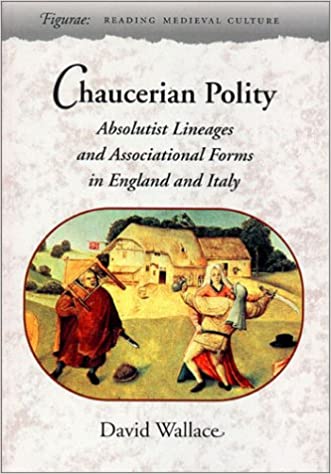By David Wallace (NHC Fellow, 1989–90)

Stanford, CA: Stanford University Press, 1997
From the publisher’s description:
This study of Chaucer's poetry and prose incorporates approaches gleaned from modern Marxist historiography, gender theory, and cultural studies. It presents an articulation of Chaucerian polity through analyses of art, architecture, city and country, household space, guild and mercantile cultures, as well as literary texts. The author argues that The Canterbury Tales reveal the influence of Chaucer's Italian journeys and exposure to the the great Trecento authors Dante, Boccaccio, and Petrarch and the Trecento's most crucial material and ideological conflict - that between the associational polity of Florence and the prototype absolutist state of Lombardy. In drawing these parallels, the author challenges conventional divisions between the medieval and the Renaissance.
Awards and Prizes
James Russell Lowell Prize (1997)Subjects
Literature / History / Middle Ages / Politics / The Canterbury Tales / Geoffrey Chaucer / Italy /Wallace, David (NHC Fellow, 1989–90). Chaucerian Polity: Absolutist Lineages and Associational Forms in England and Italy. Figurae: Reading Medieval Culture. Stanford, CA: Stanford University Press, 1997.